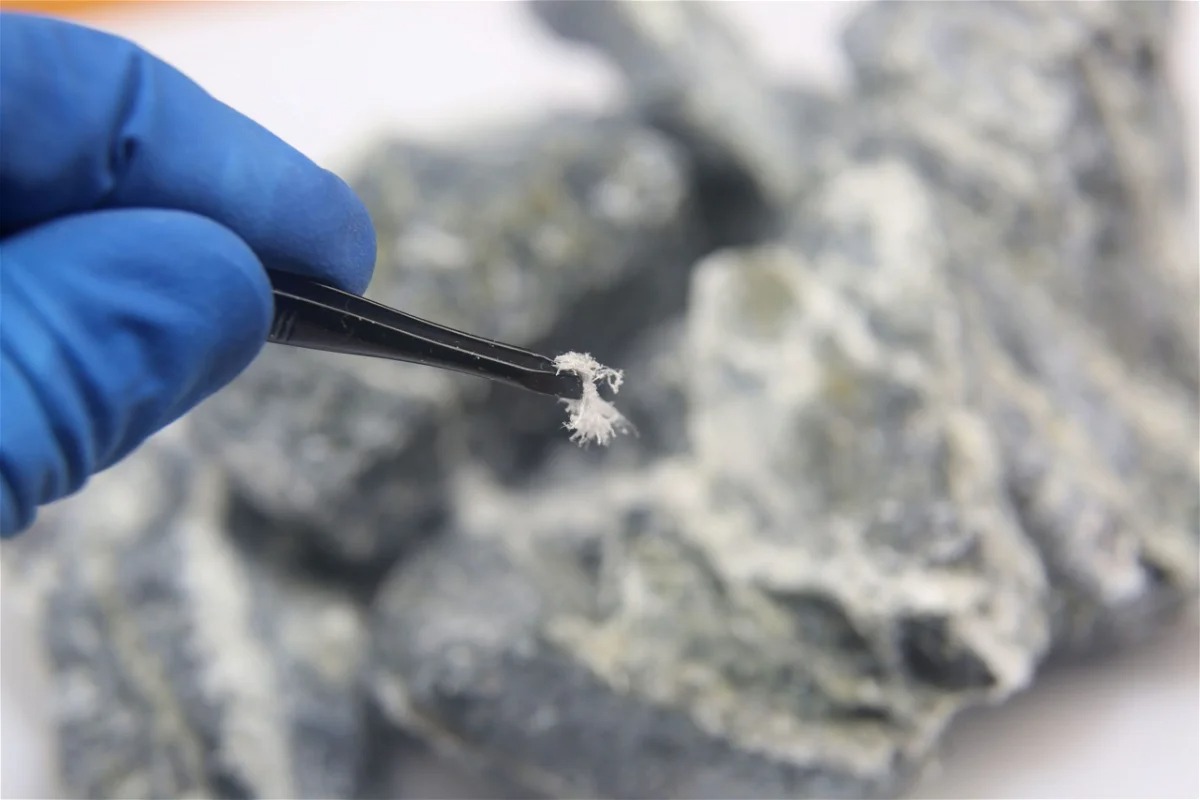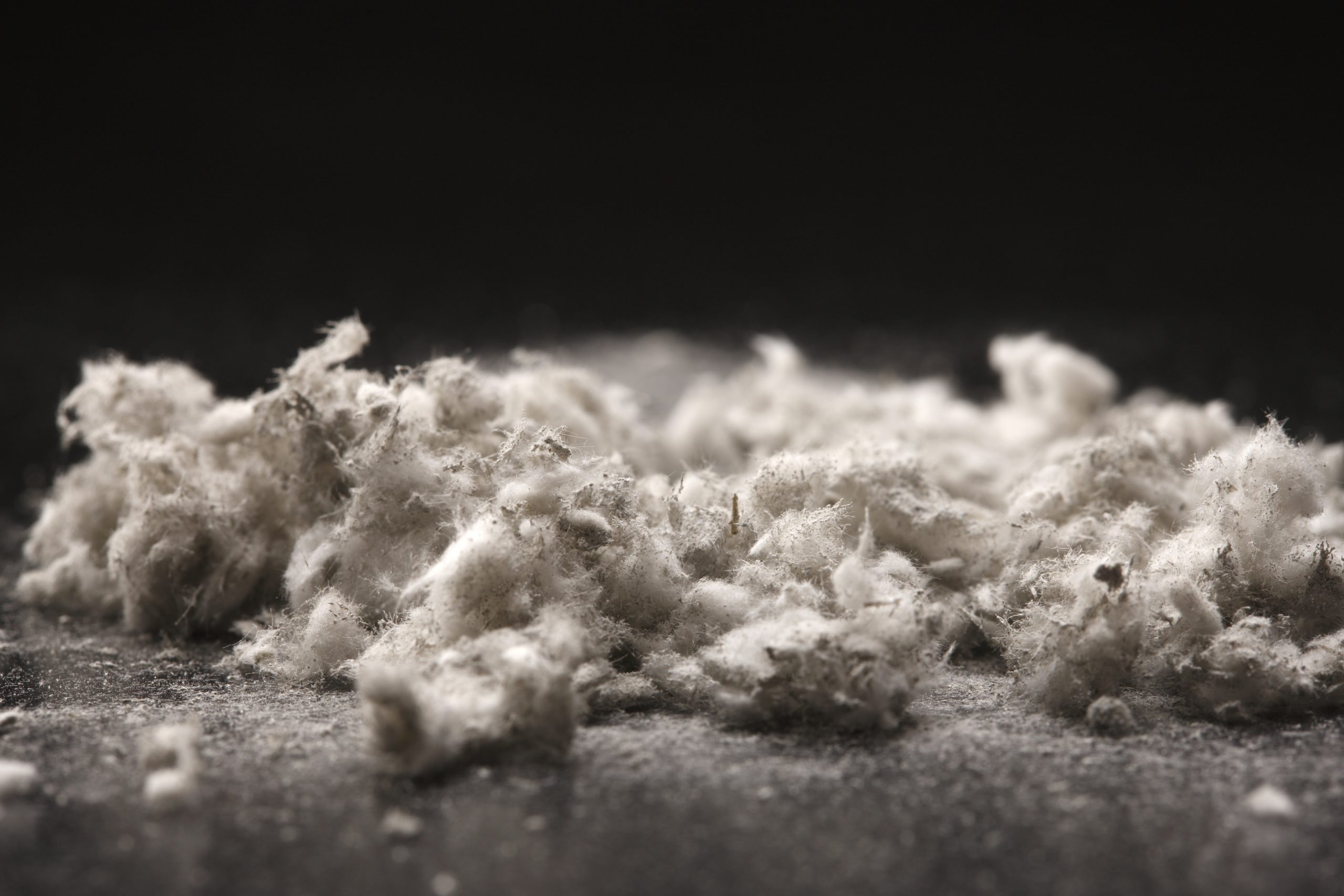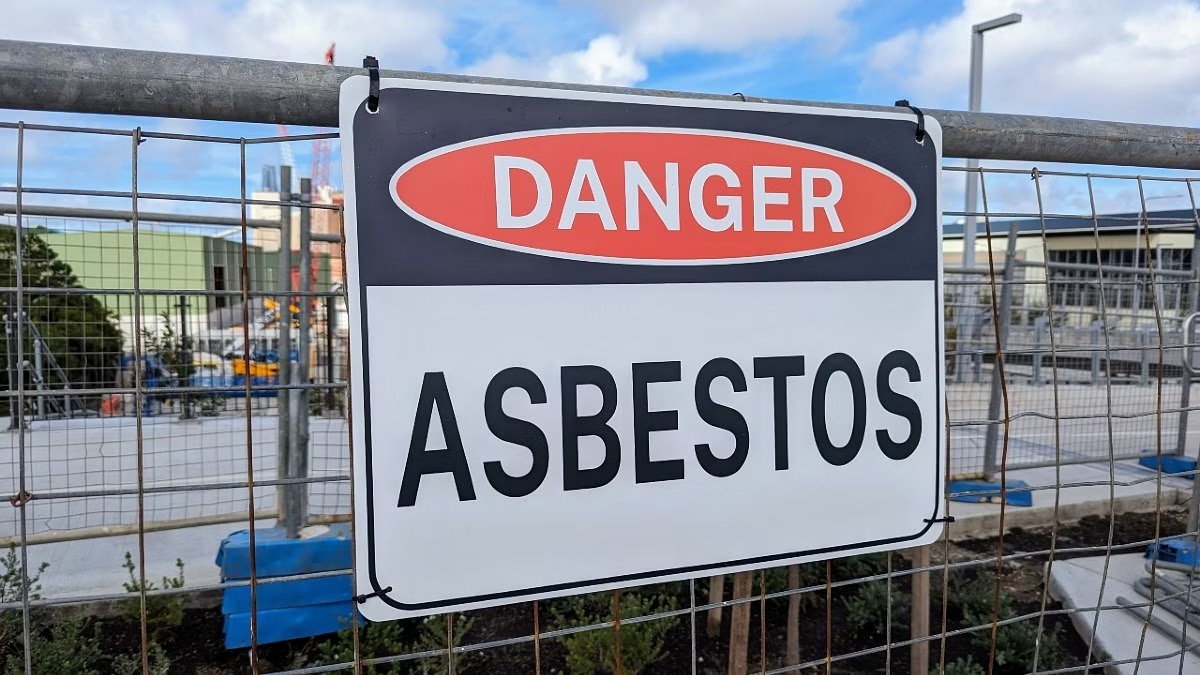President Joe Biden’s administration achieved a monumental milestone on Monday with the finalization of a rule that bans the last remaining form of asbestos in the United States. This move marks the culmination of efforts initiated half a century ago when the government first targeted this cancer-causing mineral.
Chrysotile asbestos, utilized in various industrial processes, vehicle brake linings, pipe gaskets, and more, has already been prohibited in over 50 countries, with the U.S. being a notable exception.
Environmental Protection Agency chief Michael Regan addressed reporters, emphasizing the necessity of this action: “While the use of asbestos in the United States has been declining for decades, the use of chrysotile asbestos has continued to this day. But the science is clear and settled: there is simply no safe level of asbestos exposure.”

Form of Asbestos (Credits: KTVZ)
Asbestos exposure is associated with the deaths of over 40,000 Americans annually due to lung cancer, mesothelioma, ovarian cancer, and laryngeal cancer.
The cessation of its usage aligns with Biden’s “Cancer Moonshot” initiative, a White House program to reduce cancer-related fatalities.
Regan highlighted the significant strides taken to combat cancer and protect public health: “Ending the use of asbestos in the United States is not just a regulatory milestone; it is a significant victory for public health. By banning chrysotile asbestos, we are taking a crucial step towards preventing needless suffering and saving lives.”
The decision to ban chrysotile asbestos comes after extensive scientific research and public consultation. Experts have long warned about the dangers of asbestos exposure, with overwhelming evidence linking it to a range of debilitating and often fatal diseases.
In addition to its carcinogenic properties, asbestos fibers are known to cause serious respiratory issues and other health complications. The ban represents a crucial step in safeguarding workers, consumers, and communities from the devastating effects of asbestos exposure.

Form of Asbestos (Credits: RPF Environmental)
The move underscores the Biden administration’s commitment to prioritizing public health and environmental protection. By taking decisive action to ban chrysotile asbestos, the administration is sending a clear message that the safety and well-being of Americans are paramount.
The ban on chrysotile asbestos is a significant victory for advocates who have long called for stricter regulations on hazardous substances. It reflects a growing recognition of the importance of proactive measures to address environmental and occupational health risks.
Looking ahead, the implementation of the ban will require collaboration between government agencies, industry stakeholders, and the public to ensure compliance and enforcement. Education and outreach efforts will also be crucial in raising awareness about the dangers of asbestos and promoting safer alternatives.
The finalization of the rule banning chrysotile asbestos in the United States marks a major milestone in the fight against cancer and the protection of public health. It is a testament to the power of science, advocacy, and collective action in addressing pressing environmental and health challenges.























